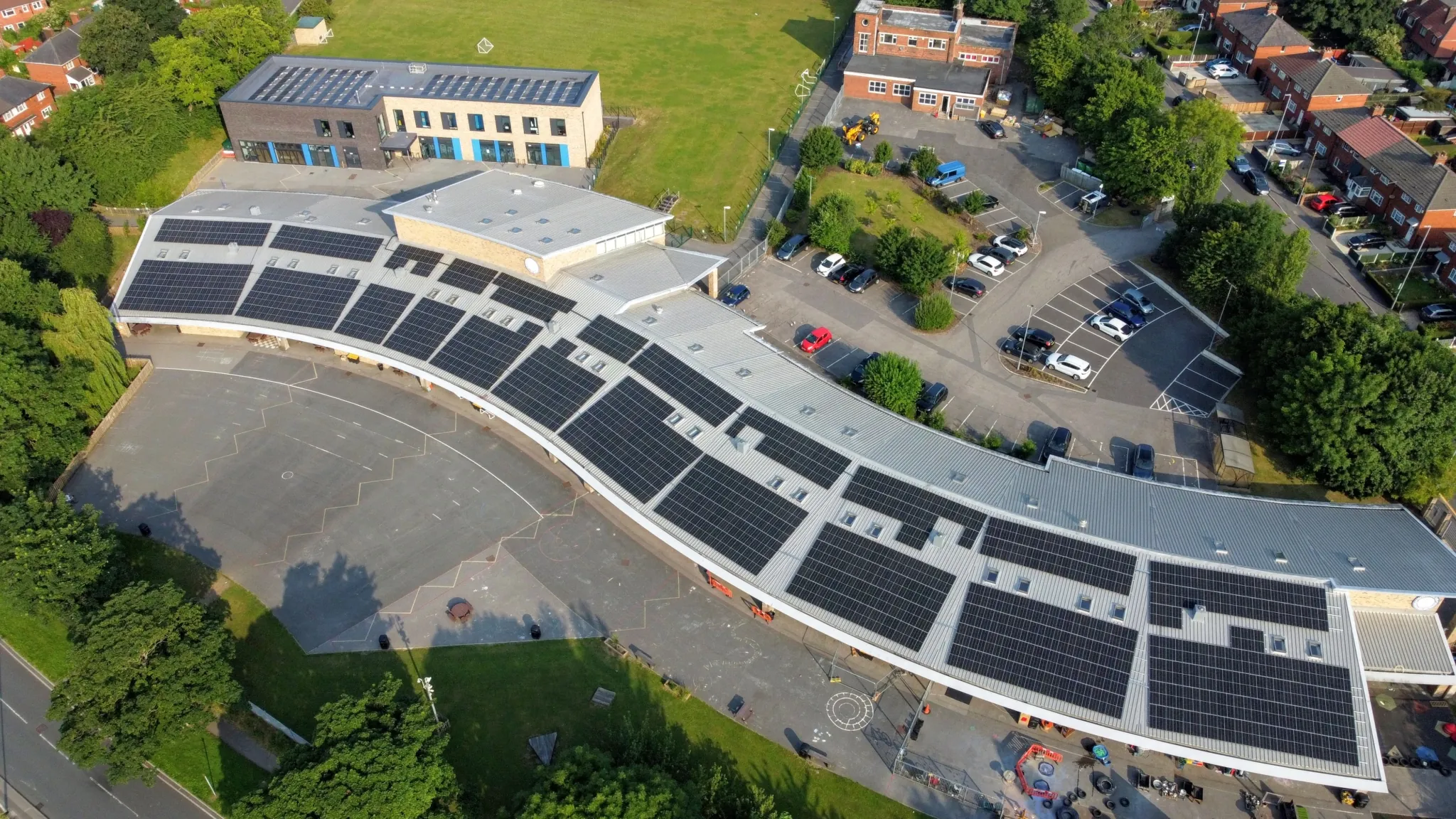
How-to Guide
Local authorities and community energy
Local authorities and community energy organisations share common goals: delivering affordable, low-carbon power, tackling fuel poverty, and keeping the economic benefits of the energy transition within communities.
This page explains how councils can work with community energy organisations to achieve those goals. It shows practical ways to collaborate, and highlights success stories that can help councils build strong, long-term partnerships with community energy organisations.
Why support community energy
Community energy projects create local jobs, tackle inequality, and reinvest profits where they are generated.
Research shows that community-owned projects bring 12–13 times more social value and 34 times greater local financial returns than commercial ones. They are also 4–5 times better at engaging residents, making them trusted local intermediaries and effective partners in behaviour change and energy transition work.
“Supporting the local development of community energy projects has positive impacts on equality, social cohesion and economic opportunity.” – Local Government Association, 2024
Community energy partnerships help councils deliver on multiple priorities, including:
- Local wealth building and economic resilience
- Creating skilled green jobs
- Achieving local net zero targets
- Improving public engagement and ownership
- Reducing fuel poverty
Read the LGA briefing and UK100 toolkit for more evidence.
How to support community energy
Here are nine practical ways for councils to work with community energy groups, based on insights from the LGA, UK100, and Community Energy England’s local authority webinars.
- Identify and connect
Use the Community Energy England National Map to find local groups and invite them to take part in your climate, retrofit, or energy programmes. - Make assets available
Offer roof space, land, or buildings for community-owned solar, battery storage, or electric-vehicle charging. - Invest or co-finance
Provide start-up grants, loans, or equity. Even small amounts of seed funding can unlock significant private or community investment. - Embed community ownership in policy
Include a preference for community or co-ownership in Local Plans, Climate Action Plans, and renewable-energy policies. - Buy community power
Enter Power Purchase Agreements (PPAs) with local community projects, or act as an “off-taker of last resort” to support investment confidence. - Fund early-stage development
Offer small feasibility grants. Modest support of £10,000–£50,000 can move projects from idea to delivery. - Convene and coordinate
Run a “community energy summit” and nominate a single point of contact within the council for community-energy engagement. - Build capacity and skills
Co-fund training or retrofit skills programmes, working with regional Net Zero Hubs or partners such as Community Energy South. - Champion and celebrate
Nominate local partners for the Supportive Local Authority category at the Community Energy Awards and showcase their work in your own communications.
“Start the conversation, look for common interests, and ask what your authority can offer that will unlock this amazing resource of energy” – Duncan Law, Head of Policy and Advocacy, Community Energy England
Case studies
- Essex County Council – Supports more than 25 community-energy and climate groups, launched Basildon 20-30 (the UK’s first youth-led energy group), and integrates community projects into its £250 million Climate Action Plan. Read more.
- City of York Council – Embedded community energy into its Climate Strategy and Local Area Energy Plan, partnering with York Community Energy on school solar and retrofit projects. Read more.
- Torbay Council – Works with Exeter Community Energy to deliver retrofit and energy-advice programmes reaching 63,000 homes, prioritising vulnerable residents.
- Cambridgeshire County Council – Partnered with Swaffham Prior Community Land Trust on a renewable-heat network, supported by council investment and a solar private wire.
- West of England Combined Authority – Granted £2.7 million to 12 community projects and is developing a regional Community Energy Strategy and open-data portal.
- Rossendale Borough Council – Lead partner in Net Zero Terrace Streets, an Innovate UK project creating scalable models for affordable, low-carbon retrofit.
Find more details of these and other examples in our case studies
Videos: Councils & Community Energy
Further reading
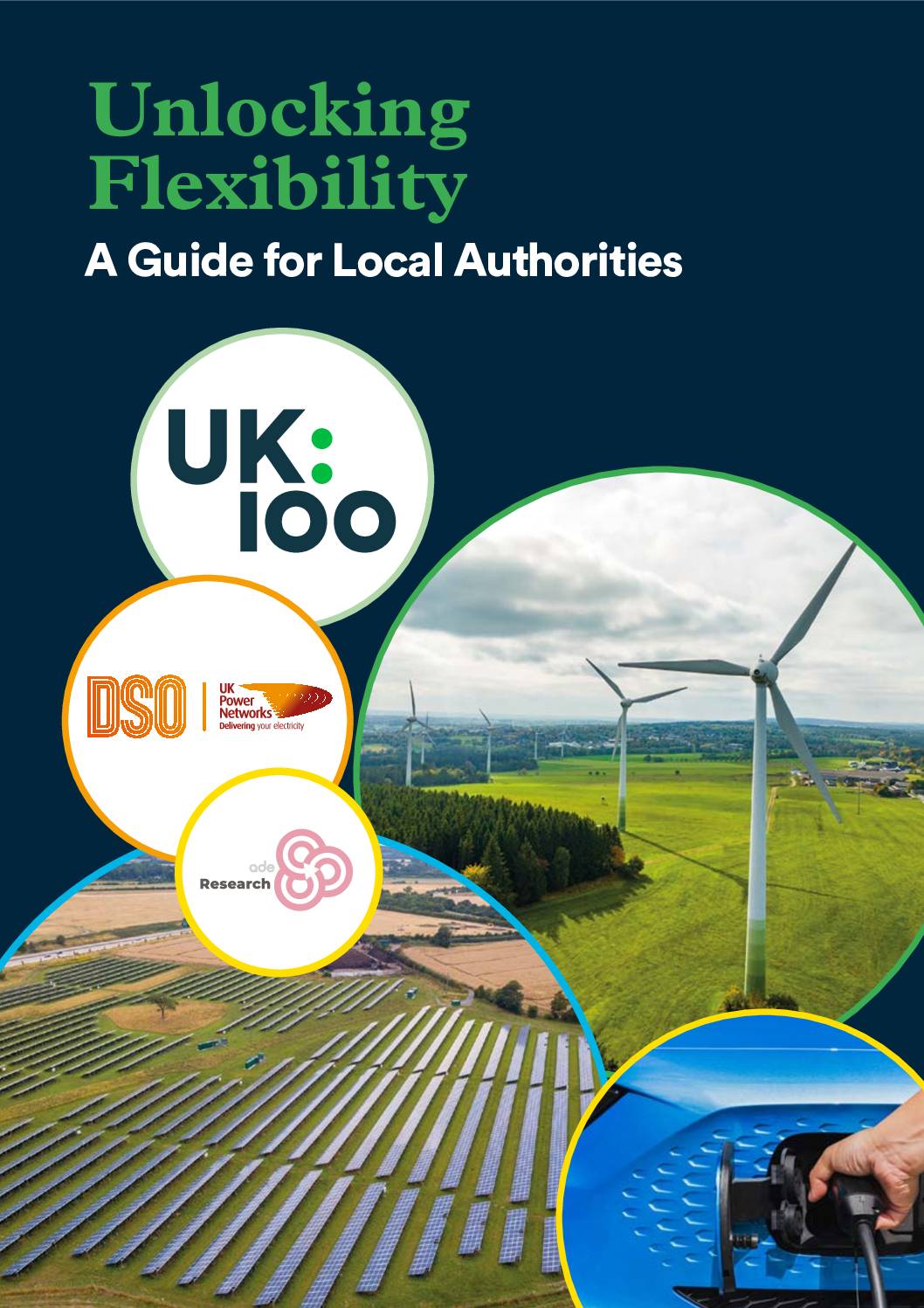
Unlocking Flexibility: A Guide for Local Authorities (January 2026)
Download (PDF, 1.5MB) Unlocking Flexibility: A Guide for Local Authorities (January 2026)
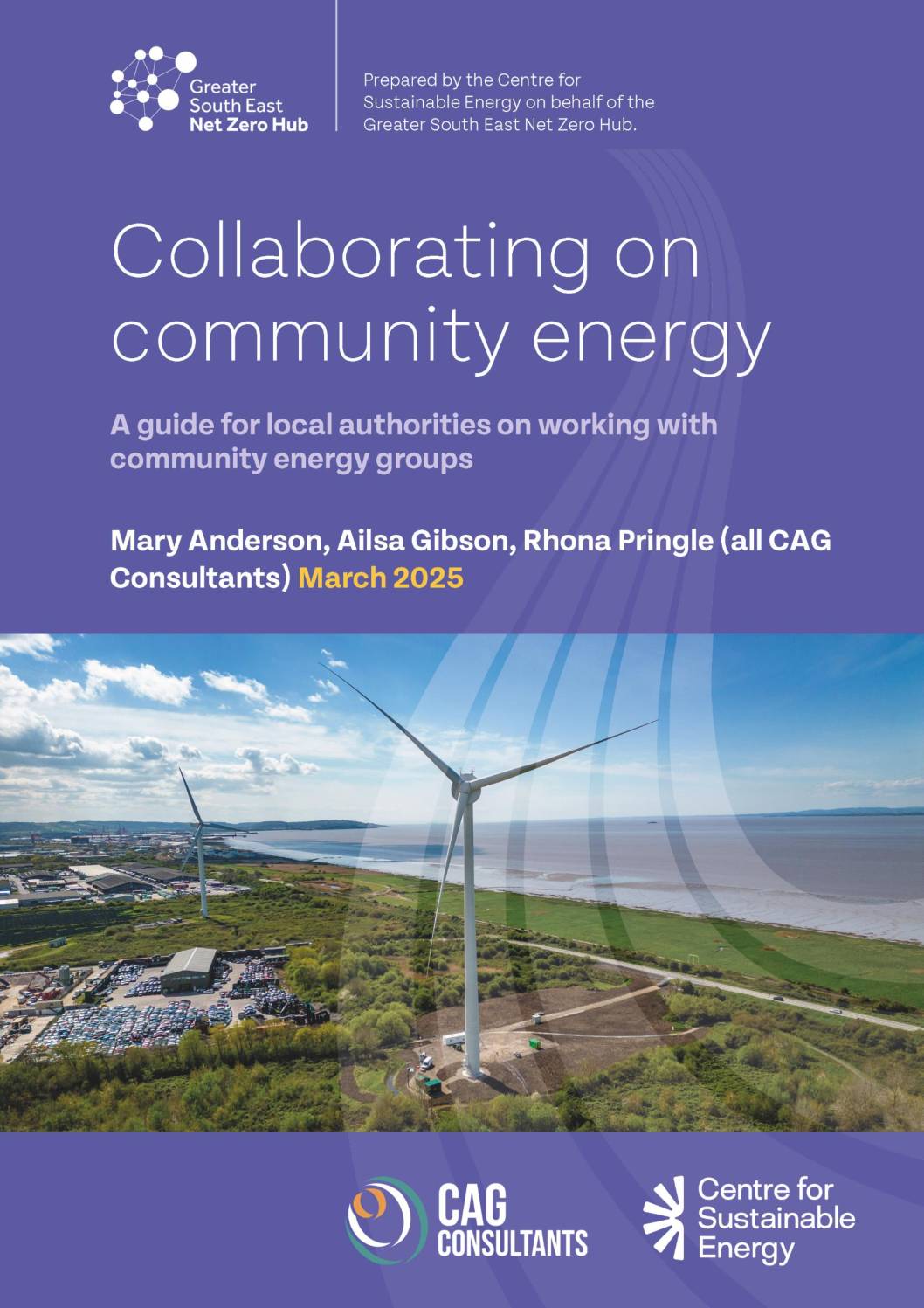
Collaborating on community energy: A guide for local authorities on working with community energy groups (March 2025)
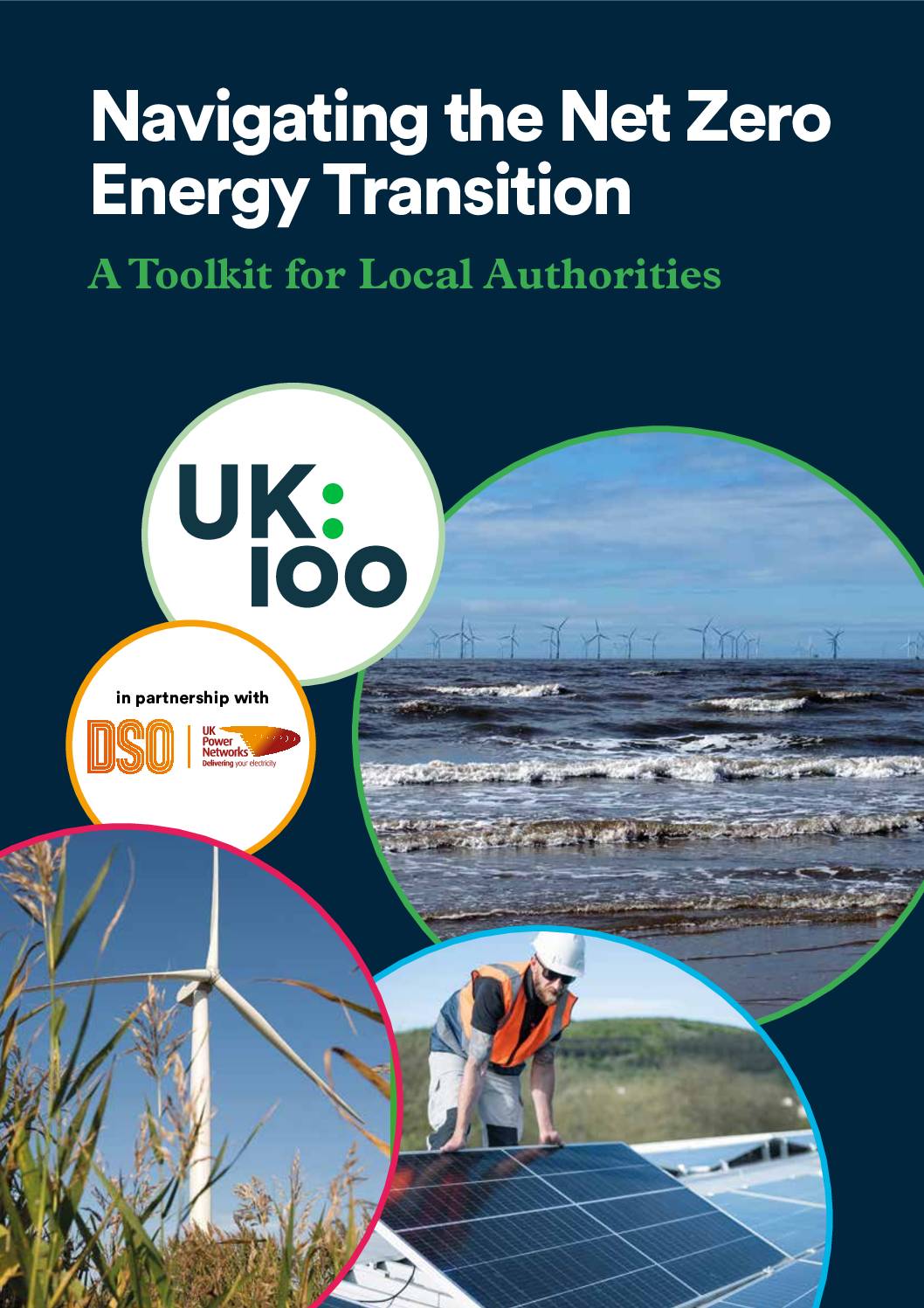
Navigating the Net Zero Energy Transition: A Toolkit for Local Authorities (September 2024)
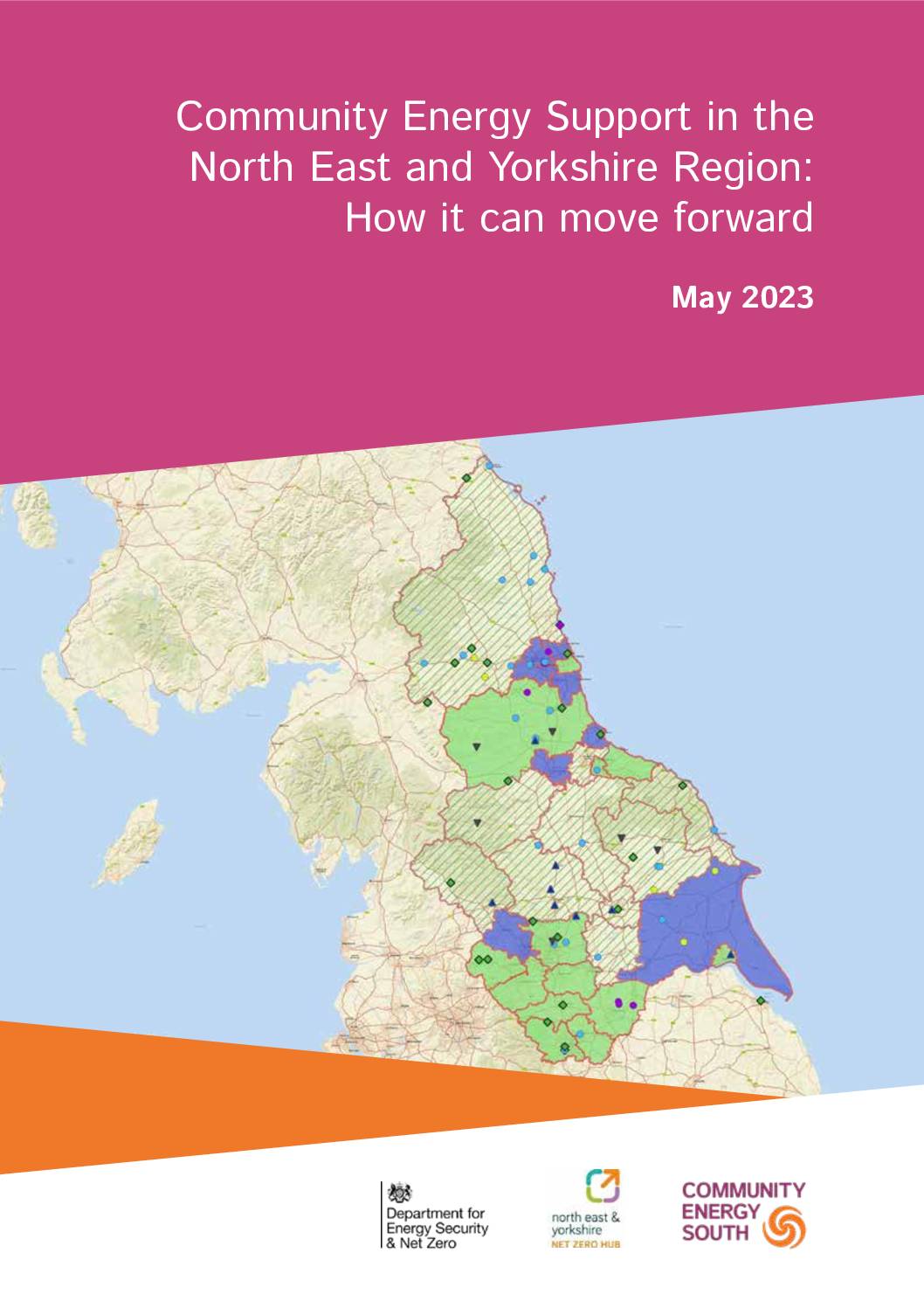
Community Energy Support in the North East and Yorkshire Region: How it can move forward (May 2023)
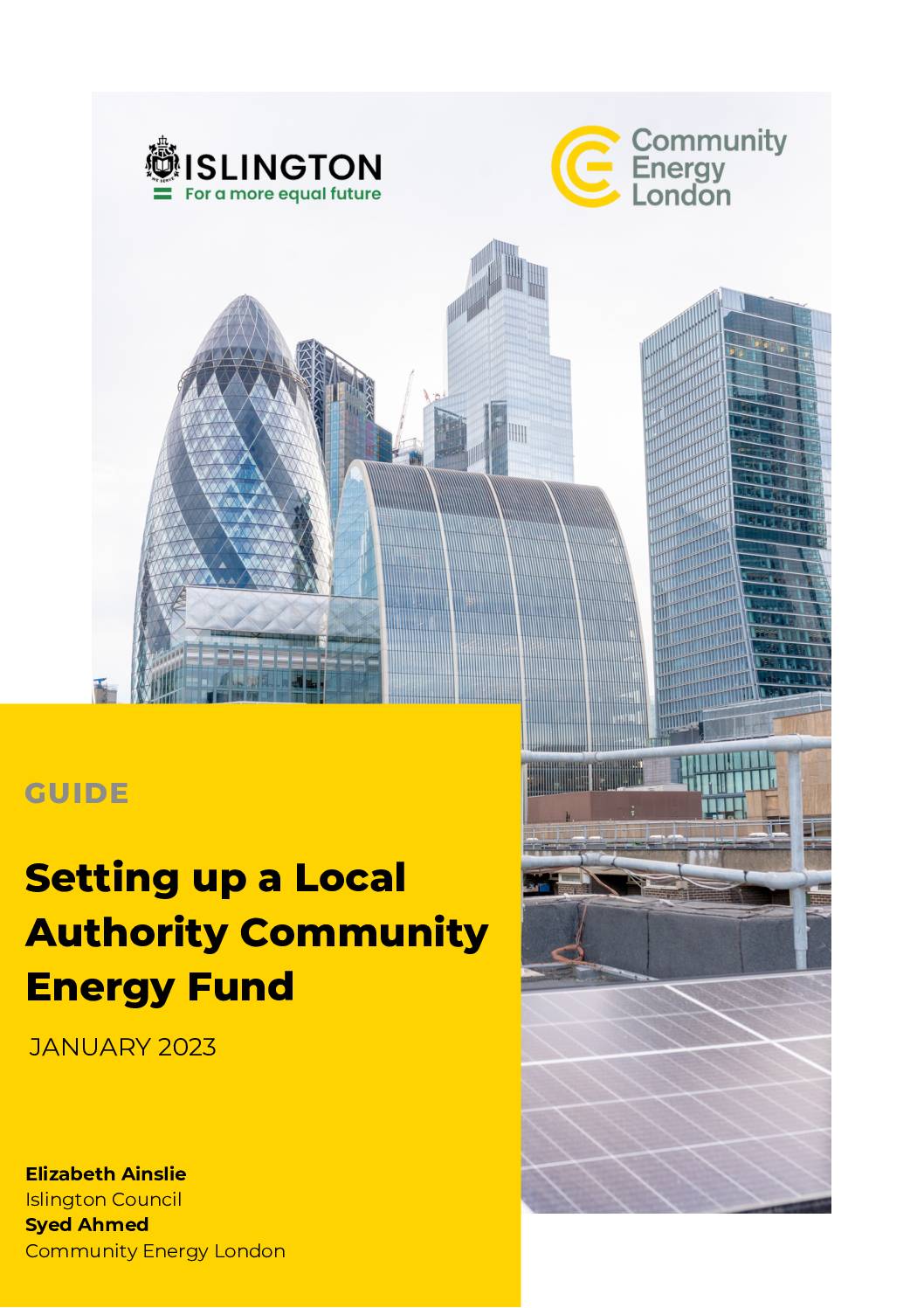
Setting up a Local Authority Community Energy Fund (January 2023)
Download (PDF, 1MB) Setting up a Local Authority Community Energy Fund (January 2023)
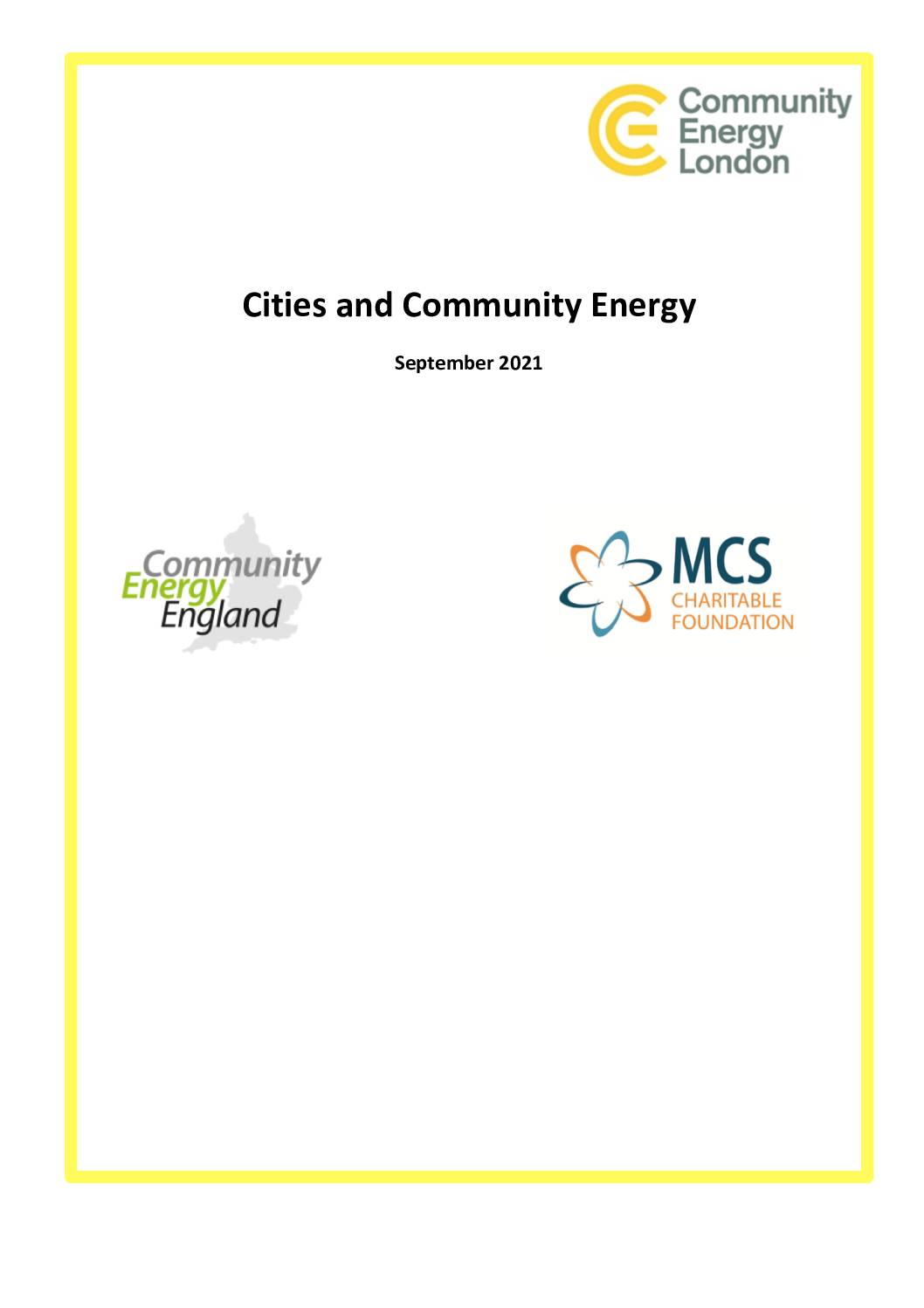
Cities and Community Energy (September 2021)
Download (PDF, 4.9MB) Cities and Community Energy (September 2021)
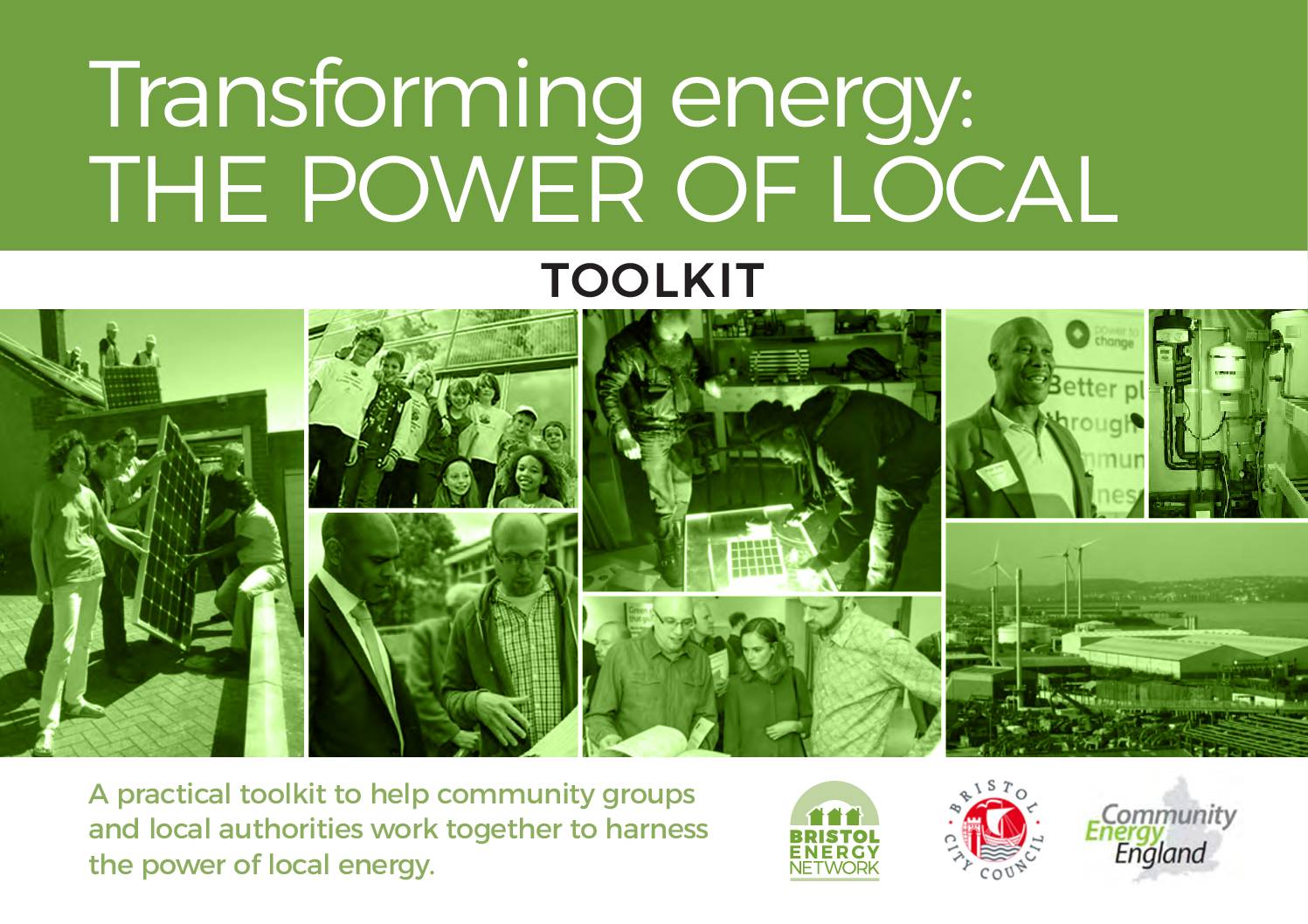
Transforming Energy: The Power of Local Toolkit (March 2020)
Download (PDF, 1.2MB) Transforming Energy: The Power of Local Toolkit (March 2020)
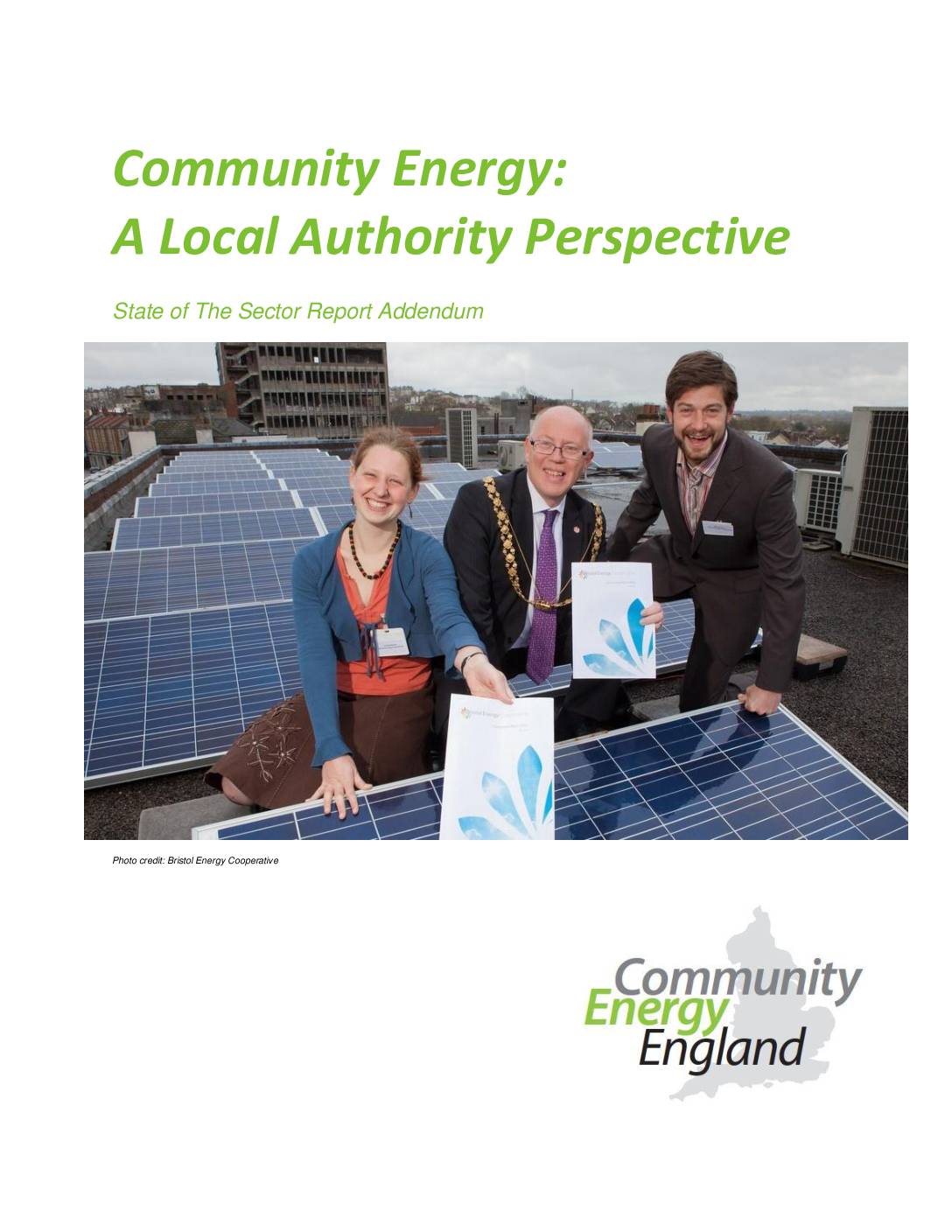
Community Energy: A Local Authority Perspective – State of The Sector Report Addendum (2017)
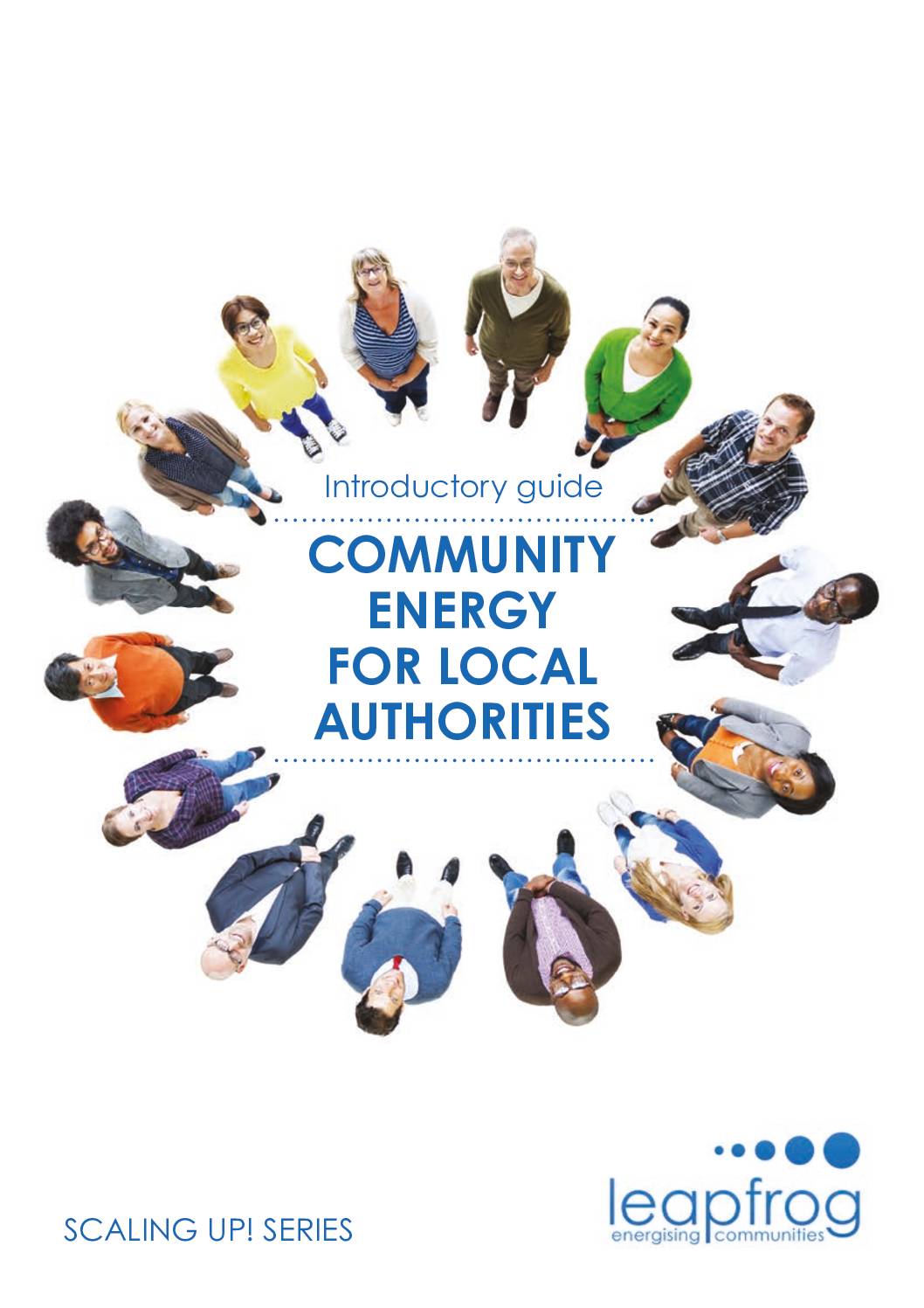
Commmunity Energy for Local Authorities: Introductory guide (Autumn 2014)
Download (PDF, 1.7MB) Commmunity Energy for Local Authorities: Introductory guide (Autumn 2014)
